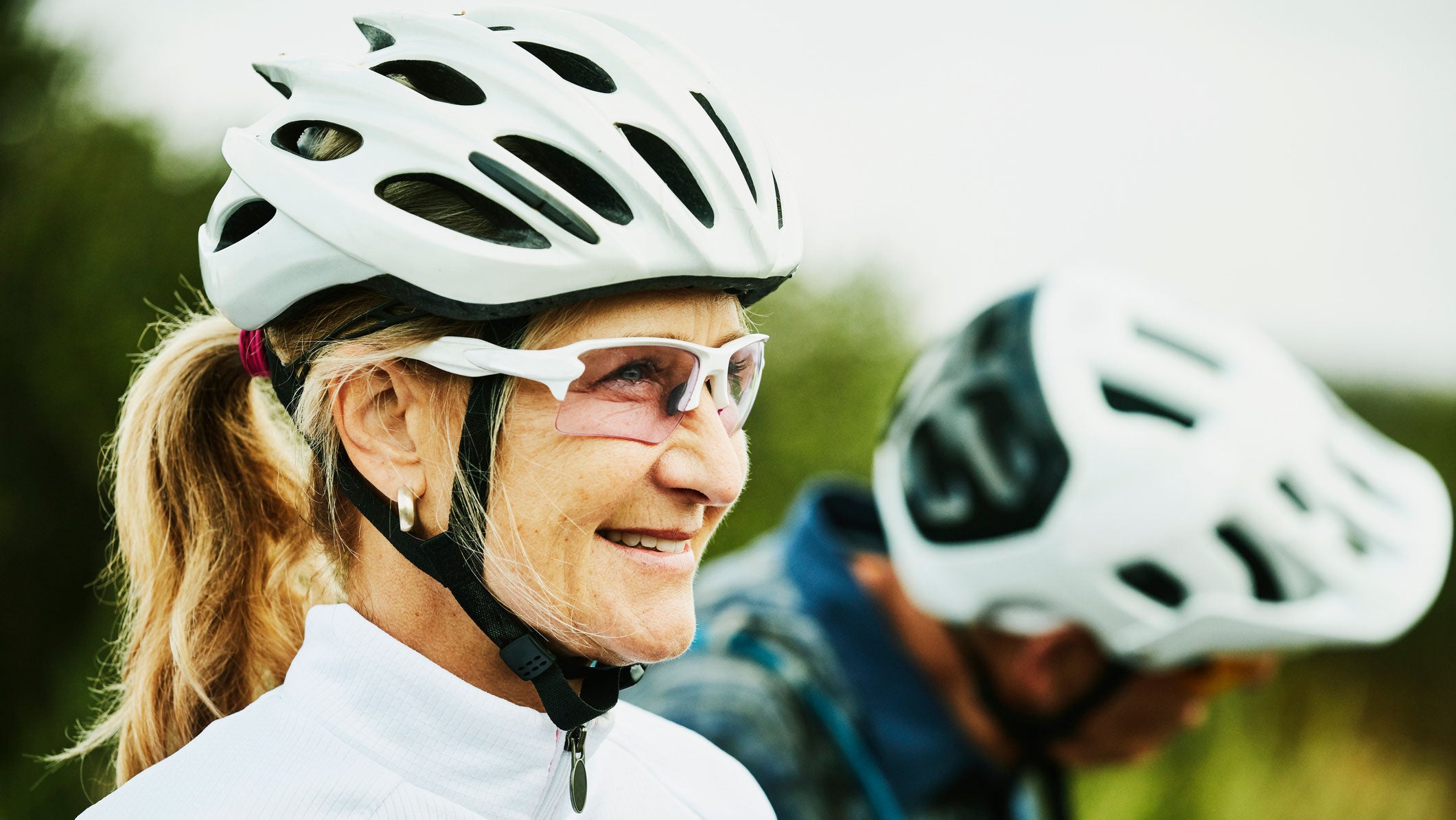The Mature Athlete: Tackling the Mental Hurdles of Aging

Erika Myers has been around the triathlon block, starting her tri career at 25 and moving her way up through the distances until racing her first Ironman in 2010. Now at age 44, the Michigan-based project manager remains active in the sport, her seasons regularly including some sprints, Olympic distances, and 70.3s. On the surface, it looks as if aging hasn’t interfered with any of it, but there’s more to the story.
In 2018, while training for Ironman Maryland, Myers went to her usual blood donation appointment, something she does regularly every 60 days or so. While going through the health check, the nurse flagged Myers for high blood pressure. Skeptical, Myers asked for another read.
“We waited a bit and then took my blood pressure again,” said Myers. It remained high, so she scheduled a cardiologist appointment.
After a battery of tests, the only thing the physician could turn up was that Myers had early-onset hypertension. “I had to go on blood pressure medications and will have to be on them for the rest of my life,” she said.
The effect of that diagnosis and the medications is that Myers sometimes struggles to keep her heart rate down while training hard and racing, and her speed is off. “I used to generally win my age group in sprints and often placed high at Olympic distance races, too,” she said. “The last two years have been humbling.” But the bigger effect might be more mental than physical.
Don’t Become A Self-Fulfilling Prophecy
When she thinks about it, although the physical effects are clearly part of her issues, Myers isn’t sure everything she’s experiencing comes down those thing. “Part of it could be the blood pressure issue, but I also think some of it is that I worry,” she admitted. “I was told that if we hadn’t caught it, I could have had a stroke.” Now that worry factors in to her training and racing.
Adrienne Langelier, MA, LP, a sport psychology consultant based in Texas, said that a lack of trust in what the body can do is a fairly common manifestation of aging. “Sometimes this becomes a fixation on areas you perceive as weak and, ultimately, it can hold you back from your potential,” she said. “I think some of this is cultural—we’re taught that we become more vulnerable as we age. People internalize that and it may or may not be accurate.”
In situations like this, Langelier says the answer is to look at the things within your control and do them. “If you’re worried about injury, for instance, make sure you’re strength-training and performing a pre-hab routine,” she said. “Yes, biology is going to change us as we age, but there’s a lot you can do to get out there and enjoy yourself.”
Another example: If speedy sprint distance races aren’t coming easily any longer because your fast-to-slow-twitch muscle ratio is changing, consider taking on a new, longer challenge. “There’s plenty you can do to still get out there, go fast, and enjoy yourself,” said Langelier.
Adjust Your Goals
The mental and emotional side of the aging equation extends beyond questioning what your body can still do. As triathletes face the physical slowdown that comes with age—usually hitting sometime in the late 30s to early 40s—many struggle. This is the point where some goal recalibration becomes smart.
“Be the role model in your age group,” Langelier said. “Don’t try to be at that pro level—instead, work on goals based on where you are today.”
Getting older in the sport is also an opportunity to get reflective. “Ask yourself if you’ve accomplished all you set out to do with your triathlon career,” she suggests. “If there’s something left you’d like to cross off your list, set a goal and go after it.”
On the other hand, if you’ve checked all your boxes, the slowdown is a good time to figure out your “why” in the sport. “If you still love the sport but competing is no longer front and center, what do you want it to look like?” asked Langelier. “This could be coaching, volunteering, or race directing, for instance.”
In other words, triathlon at age 55 doesn’t have to look the same as triathlon for you did at 25.
This is the place where Myers currently finds herself. “With no races on the calendar at the moment, there’s no better time for me to change things up,” she said. “I’m trying to do things other than bike and run and kickstart a new approach, but I do struggle with motivation in that regard.”
As you age, it’s inevitable that you’ll want to compare your current self with your old one, but Langelier said it’s important to resist. “Everyone needs to recognize that aging is a normal process and it’s OK for there to be change,” she said. “I like to tell people that as they get older, they’re not less of an athlete. Instead, they’re more than an athlete.”